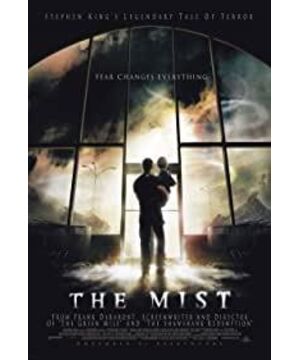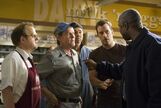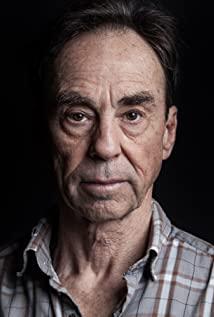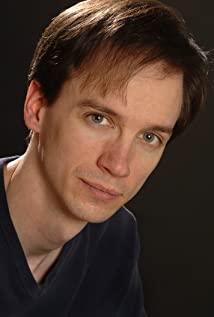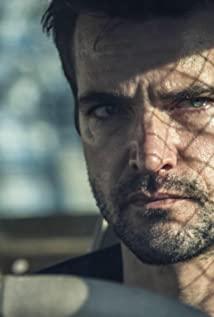Based on a theory, the following discussion has to be made. In some other European and American religious films that I have seen, God and Satan have an agreement, and they cannot directly enter the human world and affect human beings. Therefore, it is also in line with the military scientific research that accidentally opened the channel of hell and released some monsters. This is a mistake made by human beings, and God cannot directly take action.
Straight to the point, there are all kinds of foreshadowing ahead, everyone's character, and some trivia, until you enter the supermarket, the fog comes, and the monster appears.
First of all, the mother wants to go home to save the child, the man mainly takes care of his own child, everyone is afraid of the situation outside, no one helps her, and the mother travels alone. In the end, the mother rescued her child.
Then, the monster came, and the goddess began to incite the crowd. I have never read the Christian Apocalypse, but I have often seen it in some European and American movies. After a series of incitement, people believed in the goddess, including the staff of the supermarket.
In the end, a series of people, the hero and the heroine, started various self-help behaviors and had their own opinions. In the end, seeing that the momentum was not good, they decided to break through. In the end, he failed, was killed by a monster, killed the old woman and the child himself, before committing suicide, the army appeared and the fog dissipated.
Let’s start to analyze the meaning of these characters:
According to my understanding of Christianity, there is God and Satan the devil. These monsters are definitely not sent by God to destroy the world. Which movie have you watched? God uses this method to destroy world? (How much sin has this town committed for God to use this kind of punishment?) So, the monsters are obviously demons;
since the demons are coming, God must find a way to save these people (the monsters are so big, you have to say They belong to aliens, not mythical monsters. These big monsters eat up their own planet in minutes);
therefore, the implied identity of the mother corresponds to the messenger of God, and those who walk with the mother will also be rescued, which is given by God. their chances of survival. I understand that Christianity is not like Buddhism, which cuts flesh and feeds eagles. If I don’t go to hell, whoever goes to hell will go to hell. God saves people, and people also need people to pass the test. The mother’s requirement is the test.
As a result, no one passed the test.
Next is the goddess, her identity should be the devil's messenger, she has been encouraging people, and it is also in line with the monsters that did not kill her.
Then, the male protagonist's gang of people who are desperately trying to live, and the dead may all go to heaven (doesn't Christianity say that people are born with sin? Going to heaven is their greatest wish) until finally in the car, they saw the huge giant Big monster, everyone is disheartened, and then there is a very important line. The two old people said, no one can say that we didn't try our best. According to my understanding of Christianity, life is bestowed by the Lord, believers should cherish their own lives very much, and cannot commit suicide, right? No matter what the reason, people who commit suicide are going to hell, not heaven, right? Because the male protagonist fired the gun, I think they may have gone to heaven, but the blame is all on the male protagonist.
So, in the end, the male protagonist survived, but it was more uncomfortable than death.
It is estimated that all the people in the supermarket are dead (people who do not believe in God go to hell), only the male protagonist's life can be continued, and God will continue to let him live, but he must also accept God's punishment.
Of course, you have to say that the male protagonist is so desperate, his three views are so positive, and he ends up like this. However, to explain it in a religious way, it is possible that God has his arrangements, just like the Tang monks who took the scriptures, went through hardships and achieved a golden body.
View more about The Mist reviews


